How to Get Rid of Mosquitoes in Your Backyard: 10 Tips & Tricks
-

- Last updated:
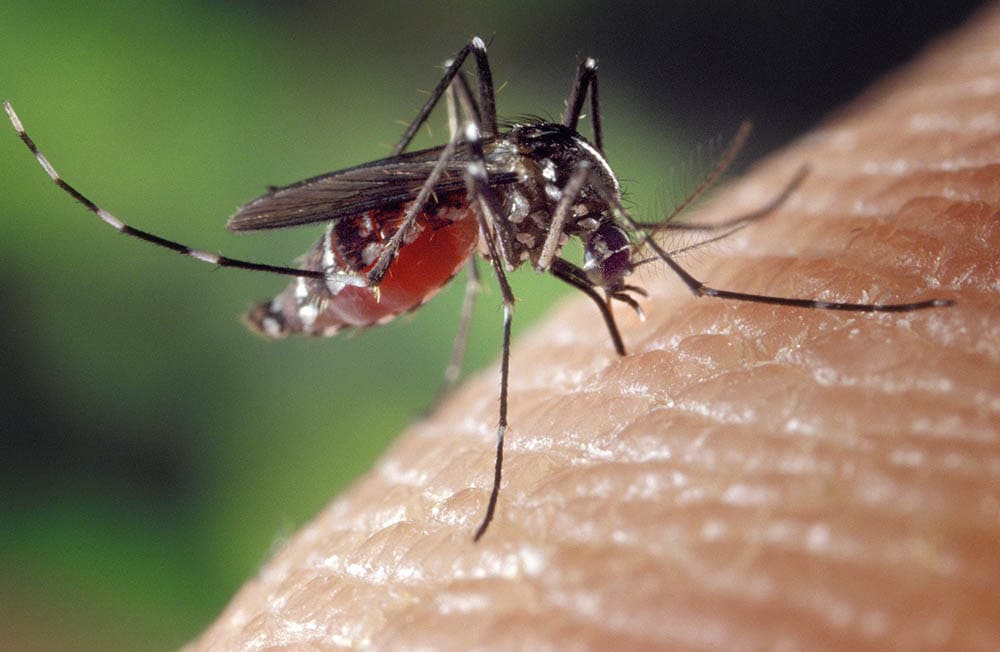
If you’re sick and tired of having to deal with what seems like a never-ending swarm of mosquitoes in your backyard, we feel your pain! While their bites aren’t necessarily a big deal, these insects tend to be a handful. So, how do you solve this problem once and for all? Or, at the very least, how do you keep the “mozzie” population to a minimum? We have all the answers right here!
This guide includes 10 useful tips and tricks for handling the mosquito situation in the backyard. Don’t worry–you won’t have to spend big bucks to get rid of the swarm. While it will take some elbow grease, there’s actually nothing hard about this. Alright, let’s get right to it!
| Botanical Name: | Culicidae, order Diptera |
| Genera/species: | 110/3,600 |
| Life cycle: | 8–10 days (on average) |
| Natural habitats: | Humid and shady areas |
| Least active time: | In the middle of the day |
| Bite itching time: | 3–4 days |
What Is a Mosquito?
Unless you live in the Sahara Desert or Iceland, you probably know very well what a mosquito is. Fast, hard-to-spot, but with an annoying buzz, these flying insects can ruin an otherwise lovely day by covering your body with bites. On average, the bites stop itching in 4 days. Now, we’ve got 3,600 species of mosquitoes out there (about 200 are native to the US), divided into 110 genera.
And, there are 110 trillion mosquitoes living on the planet. They outnumber our species—the humans—16K to 1 and become active in summer or fall. The mosquito life cycle (turning from an egg into a larva, then a pupa and a full-fledged adult) takes 8 to 10 days. As for the lifespan, females live a lot longer than males: 6–8 weeks vs. 7–10 days. In some rare cases, females live for up to 4–5 months.
The 10 Tips to Get Rid of Mosquitoes in Your Backyard
1. Keep Your Backyard Debris-Free

The first thing you need to do to get rid of the mosquito infestation for good is to remove any and all debris from the backyard. First, check the pond/swimming pool. If you haven’t cleaned those areas for a while, mosquitoes have probably set up base there. Clean all the dirt and excess vegetation. Next, climb up the roof. Is it cluttered with leaves and dirt? You know what to do!
Compost piles, tree branches, and even old furniture can also serve as a home for mosquitoes. Lastly, remove the debris from the street gutters, catch basins, and French drains. If you don’t have any drainage system installed, now it’s time to take care of that.
2. Apply the Dethatching Technique
Mosquitoes only need two things to reproduce: shade and moisture. That’s why tall grass and leaves are perfect for them. To solve this problem, you need to bring the soil moisture levels back to normal. That can be achieved through dethatching. This term describes the process of removing dead roots, leaves, and stems from the backyard. You’ll need a dethatching machine (a rake will also do, but it will be a lot of work).
Use it in early fall and only when the soil is nice and dry. You can rent it at the closest home improvement store. If you don’t have grass growing in the backyard (maybe it’s covered in concrete, granite, or stones), thatch won’t be a big problem. Oh, and by the way, if you have artificial turf instead of natural grass, mosquitoes won’t be able to breed there, either.
3. Treat Standing Water as Your #1 Enemy
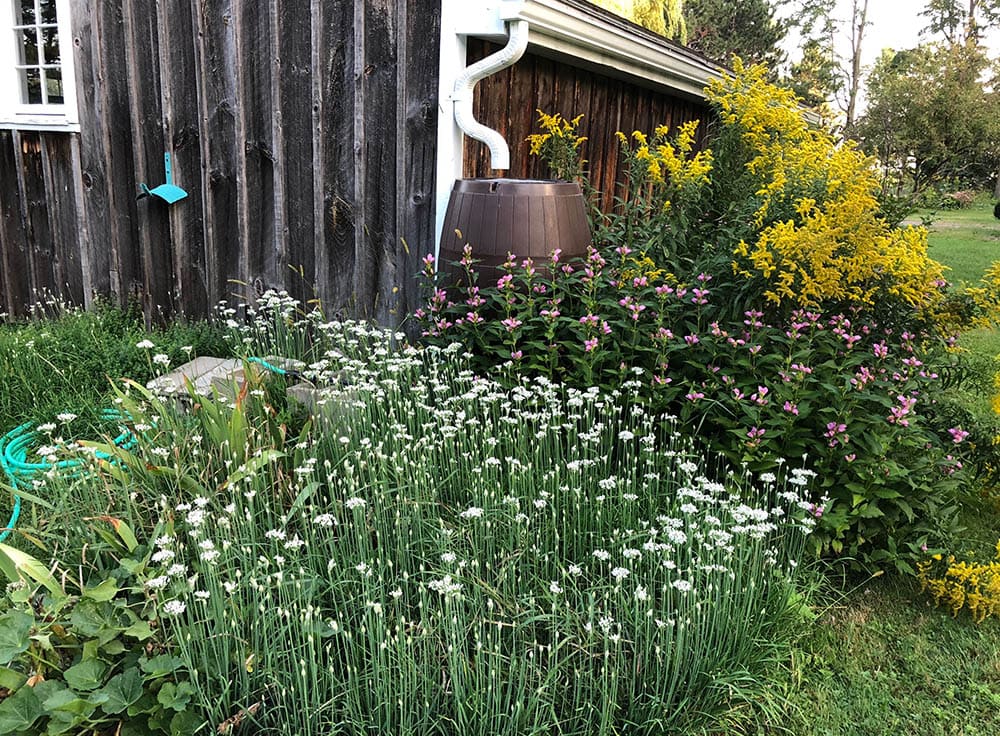
Mosquitoes lay their eggs near or right on the surface of the water. If you have a pool in the backyard, keep your eyes on the water level. Next, plant a rain garden near the pool and let the flowers absorb excessive moisture. Garden beds, planters, tires, saucers, or even tiny barrels and trash containers are all potential breeding grounds for mozzies. Keep all your containers covered 24/7 to prevent water from accumulating.
Don’t have enough lids for that? Wire mesh might help solve the issue. It needs to have very small holes, though, to stop mosquitoes from reaching in. Also, make a habit of emptying any water-carrying vessel/item once a week. Got any tree holes? They serve as nesting grounds for a wide range of insects. Fill these holes with water-resistant expanding foam.
4. Cover Open Pipes and Vents+
Downspouts, gutters, and septic tanks tend to wear out over time. Even if it’s a tiny crack, mosquitoes will find a way to lay eggs there. Inspect every single pipe and vent in your backyard and cover the openings. If you’re not sure you’re up to the task, call in a professional for help. They’ll seal the pipes and flush all the water out to prevent the eggs from hatching.
Ask the specialist to check/empty the cooler drains, plastic pools, and catch basins next, along with the sprinkler system.
5. Grow Plants That Keep Mozzies Away
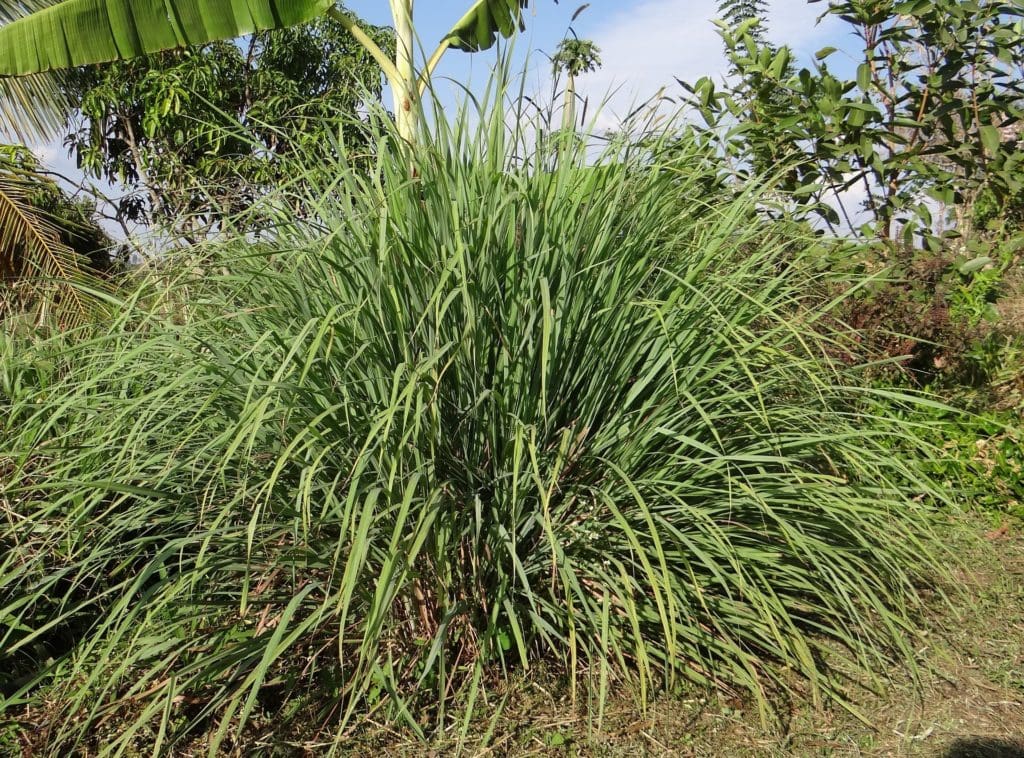
Did you know that mosquitoes are attracted to certain scents and repelled by others? That’s right, and you can shake them off by growing the right plants and flowers. The list includes lavender, rosemary, lemongrass, basil, eucalyptus, and peppermint, to name a few. They will act as kryptonite not only for mosquitoes but for many other insects as well. As a bonus, you’ll attract birds like swallows and martins.
Where do you put these plants, though? Just like with a rain garden, the best place will be near mosquito-favored spots. We’re talking about pools, ponds, low-point areas, and humid and shady places. A quick note: it’s the oil inside of these plants that does all the work. So, just “squeeze” it out and cover your skin in it, and all the mosquitoes will shoo away from you.
6. Insecticides to the Rescue
If you’re dealing with a large mosquito population, emptying buckets, beds, and planters from water or covering all the pipes might not do the trick. Fortunately, there’s a tried-and-true solution for that: insecticides. Apply a healthy dose of the formula to their nesting sites, and that’s it! Speaking of the formula, there are two types of products on the market:
Larvicide for Larvae and Pupae
To eradicate the infestation before the eggs “hatch”, use a larvicide. It does a great job of reducing the mosquito population (indoors and outdoors). You’ll find their eggs in gutters, buckets, containers, downspouts, tree holes, and pool covers. Granules, liquids, and pellets—this insecticide comes in different shapes. Follow the instructions and only apply the product to water that you will NOT be drinking, like from the pond or the pool.
Adulticide Against Grown Insects
Got grown mosquitoes to handle? Then go with an adulticide instead. This solution is recommended for outdoor use but can be used indoors as well. It has a lingering effect and may come in the form of an aerosol/spray, coil, or fogger. Use it to treat trees, bushes, and tall grass. Don’t forget to also spray under the porch and the deck. But don’t apply it to fruits and vegetables, as that can damage them.
7. Are Repellents Effective?

No repellent product can be as effective as an insecticide, no matter how expensive it is. Repellents do, however, have a decent short-term effect and are very easy to carry around. That makes them ideal for when you’re having a barbecue outside, exploring the local swamps, or just getting to work on a hot and humid day. All you have to do is spray yourself with it.
Or, if it’s a lotion (like DEET), apply it to your skin. The best repellents protect against a long list of biting insects. This is important: certain formulas are known to cause health problems for a small percentage of people. The side effects include headaches, nausea, sore throat, skin irritation, and even rashes. Consult with your doctor before using this product.
8. Foggers vs Large Mosquito Groups
Looking for immediate pest relief? Then foggers are your best bet. These machines are quite effective in dispersing large groups of mosquitoes and other bugs. On average, they last for 48–72 hours but can keep mozzies away for up to a week. This depends on the quality of the solution, the size of the mosquito group, and the area that you live in. Foggers get rid of 70–90% of mosquitoes.
Unfortunately, they do come back once they realize your backyard is safe for breeding again.
9. Mosquito Traps
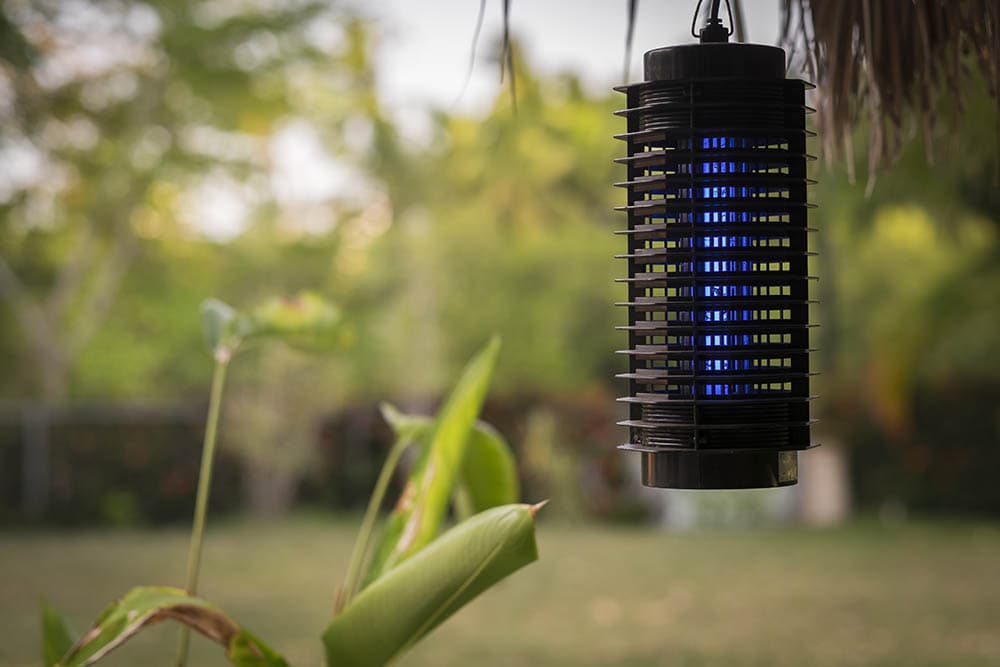
There are lots of different types of mosquito traps, but they all work in two steps. First, these devices attract bugs with the right smell. Next, they either trap or kill them using electricity. Mosquito traps are quite effective but will take some trial and error before you find the right size and the right spot to place them.
10. Thermacell and Candles
Citronella candles have been around for quite some time, and they do work. However, their efficiency isn’t that great against large mosquito populations outdoors. In contrast, if you put them in your room, the results will be rather impressive. The same is true for Thermacell devices.
Are Mosquito Bites Dangerous?
Mosquitoes feed on organic material like bacteria before they grow wings and fly. Even as adults, they eat honeydew, nectar, and sap from many plants. However, without blood, most female mosquitoes can’t reproduce, and that’s why they bite (male mosquitoes don’t do that). So, are their bites dangerous for a human, or not? The good news is—most mosquito bites are totally harmless.
However, they can make you sick. As vectors, mosquitoes carry and spread diseases. On top of that, for certain viruses, there are no 100% effective vaccines. That’s what makes them a potential hazard. Zika, the West Nile Virus, dengue, encephalitis, and the chikungunya epidemic are the most common mosquito-spread viruses in the US. Children, elderly people, and adults with weak immune systems are the at-risk groups.
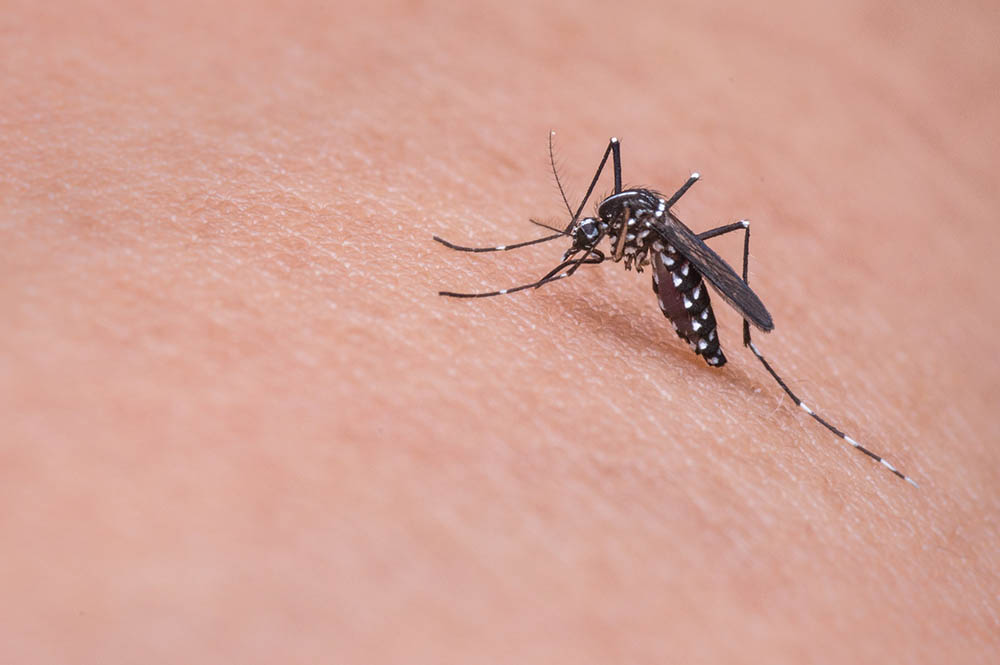
The Worst Cities in the US for Mosquitoes
Mosquitoes are mostly found in hot and humid places. This is true not only for the States but every other country around the globe. Now, if you can’t tolerate these long-legged flies, stay away from Florida, Texas, and Louisiana. And here’s a quick look at five American cities to avoid:
- Atlanta. Home to 500,000 people, Georgia’s capital is practically infested with mozzies. Hot, humid, and crowded with swamps and lakes, it’s the perfect breeding ground for mosquito eggs. And this is unlikely to change, as ATL has been on top of the “Worst cities for mosquitoes” list for 7 years straight now.
- Los Angeles. Although LA is considered a dry city, it still managed to land the #2 spot. Mosquitoes aren’t all about humidity. Above-average temperatures—that’s what makes them active, and Los Angeles is one of the hottest places in America. Global warming is going to make matters worse.
- Washington, D.C. Even the capital of the United States isn’t safe from these bloodsuckers. Again, this has to do with the weather. Springs are abnormally hot in D.C., and the summer days last for much longer. So, don’t be surprised if you see mosquitoes for the better half of the year.
- New York. NY is known for its cold, unwelcoming climate. But, once the hot and humid days arrive, bugs take over the entire city. The worst part about this is that local mosquitoes carry the West Nile virus. Make sure to protect yourself by using repellents and following our tips and tricks.
- Chicago. The Windy City is known for just that—the unforgiving winds. Unfortunately, while most mosquito populations are located in the South, where it’s humid 24/7, they have a strong presence in Chicago as well. The more it rains in the northeastern parts of the country, the bigger the problem becomes.
Alright, but what about the cities with minimal mosquito activity? For that, move to Madison (Wisconsin), Fort Wayne (Indiana), or Shreveport (Louisiana).
In Conclusion
For most people in the US, mosquitoes aren’t only a minor nuisance. Yes, they do bite and can disturb one’s sleep, but they don’t really bother us much. With that said, if you have an unusually large number of mozzies in the backyard, the faster you deal with that problem, the better. Today, we checked out the most effective ways of keeping mosquito scourges at bay.
Now, if you’re used to taking proper care of your backyard—cleaning the debris, dethatching the soil, and cleaning standing water—getting rid of these blood-sucking creatures will be a walk in the park. It all comes down to keeping the property nice and neat and using insecticides and repellents to scare the invaders off!
- CDC – Mosquito Life Cycle
- Wikipedia – Mosquito
- Ehrlich – How long do mosquitoes live?
- Orkin – What Do Mosquitoes Eat?
- Orkin – Top Mosquito Cities in the United States
- West Nile Virus Detected in Record Number of Mosquitoes
- CDC – Mosquito Bites: Everyone is at Risk!
- CDC – Mosquito Bite Symptoms and Treatment
- NIH – Pesticides: In Search of a Better Mosquito Repellent
- How Effective Is Using a Mosquito Fogging Machine?
- How To Get Rid of Mosquitoes Fast and Permanently
- The Best Ways to Get Rid of Mosquitoes
- How to Get Rid of Mosquitoes in Your Yard
- University of Massachusetts – What Is Thatch?
- Control Mosquitoes Outside Your Home
- MedlinePlus – Mosquito Bites
- UC.IPM – Mosquitoes
- CDC – Larvicides
- CDC – Adulticides
Featured Image Credit: FotoshopTofs, Pixabay
Contents

